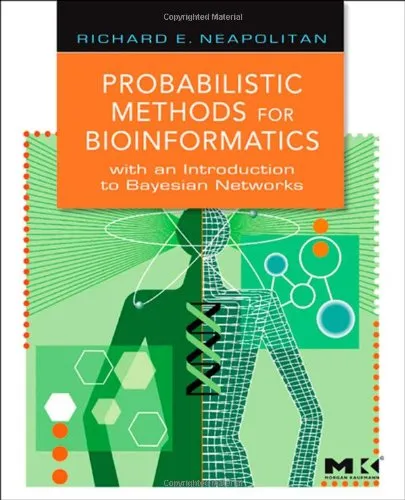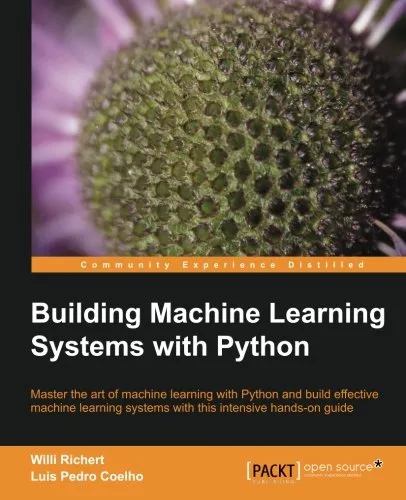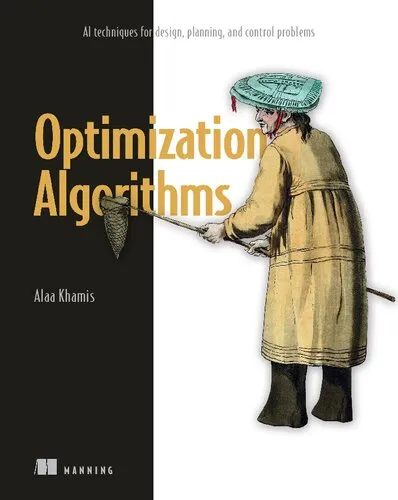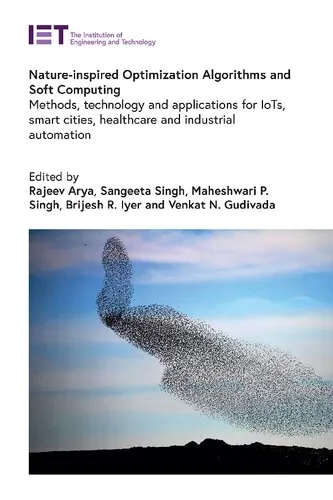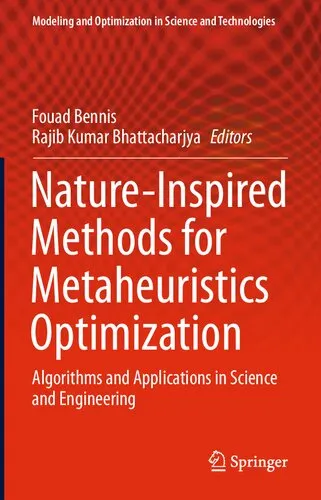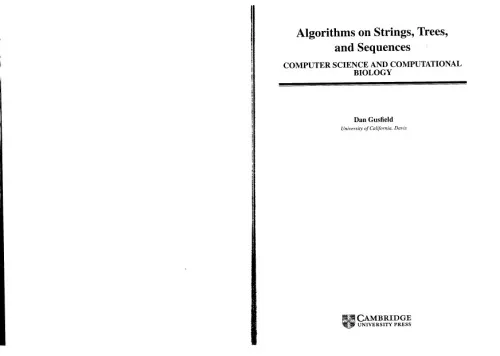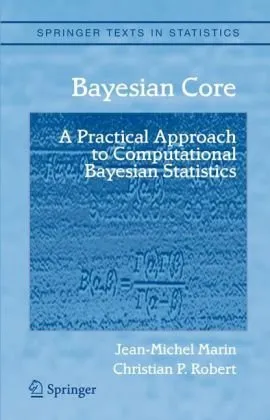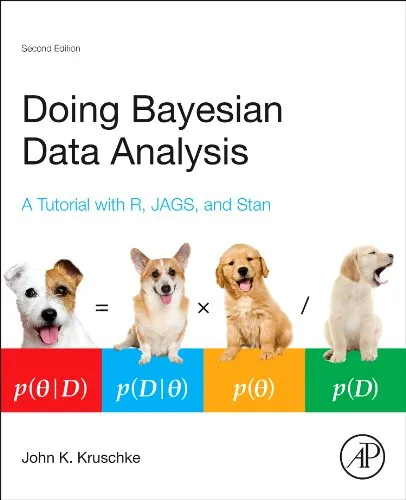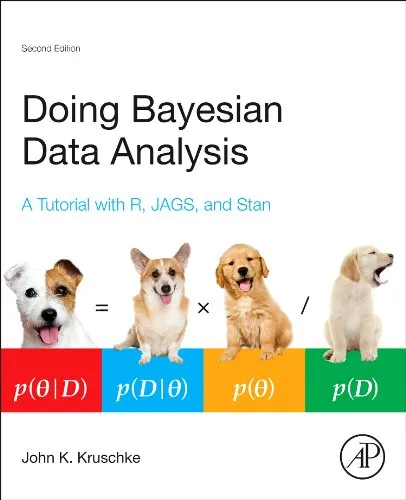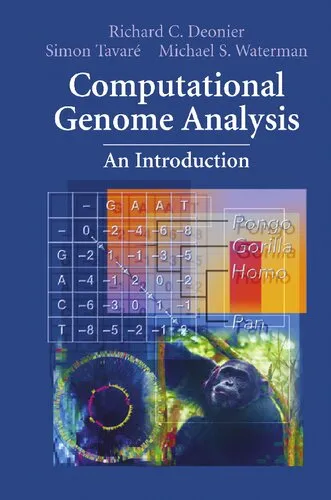Probabilistic Methods for Bioinformatics: with an Introduction to Bayesian Networks
4.5
Reviews from our users

You Can Ask your questions from this book's AI after Login
Each download or ask from book AI costs 2 points. To earn more free points, please visit the Points Guide Page and complete some valuable actions.Related Refrences:
Introduction
"Probabilistic Methods for Bioinformatics: with an Introduction to Bayesian Networks" by Richard E. Neapolitan is a groundbreaking book that merges two transformative fields: probability theory and computational biology. This text serves as an invaluable resource for researchers, students, and professionals seeking a comprehensive understanding of the fundamental probabilistic methods used in bioinformatics, with a special emphasis on Bayesian networks.
Bioinformatics is inherently complex due to the vast array of biological data and the uncertainty associated with it. This book bridges the gap between biology and computational science by teaching readers how to harness probabilistic reasoning for analyzing biological systems. Whether you're pursuing cutting-edge research in genomics, systems biology, or computational medicine, this book equips you with the technical knowledge and statistical tools to tackle real-world challenges.
Detailed Summary
This book begins with a foundational introduction to probability theory and Bayesian networks, making it accessible to readers with little or no prior exposure to these topics. The author skillfully explains complex concepts with clarity and precision, ensuring that readers can grasp the material regardless of their background.
Key topics include understanding probability distributions, Markov processes, and Bayesian inference. The book also explores bioinformatics applications such as sequence alignment, phylogenetics, gene expression analysis, and protein structure prediction. For each topic, the author demonstrates how probabilistic models can address uncertainty and provide meaningful insights.
A unique feature of this text is its focus on Bayesian networks. Readers will learn how to construct, interpret, and apply these models to bioinformatics problems – a skill that is increasingly relevant given the growing emphasis on data-driven research. The chapters are enriched with case studies, mathematical proofs, and exercises to reinforce learning and encourage active participation.
Key Takeaways
- An in-depth understanding of key probabilistic methods, including Bayesian statistics and Markov models, as they apply to bioinformatics.
- A strong foundation in Bayesian networks, including their construction, inference, and application to biological data.
- Practical examples and exercises illustrating the use of probabilistic methods in analyzing large-scale genomic and proteomic data.
- A thorough exploration of the challenges associated with handling uncertainty in biological systems and how probabilistic reasoning provides solutions.
- Clear mathematical explanations paired with biological relevance, making the content accessible yet rigorous.
Famous Quotes from the Book
“In the face of biological uncertainty, probability theory is not just a mathematical convenience—it is a necessity.”
"Bayesian networks give us the ability to represent complex dependency structures in biological systems, guiding us from data to discovery."
“Bioinformatics is not only about collecting data, but about translating data into knowledge—and for that, probabilistic reasoning is essential.”
Why This Book Matters
As biology transitions into an era of big data, the ability to process, interpret, and make predictions using incomplete or uncertain information is more essential than ever. This book stands out because it equips readers with the tools to handle the intrinsic uncertainty of biological data. By blending probability theory, computational algorithms, and biological concepts, it prepares readers to tackle pressing challenges in genomics, transcriptomics, and beyond.
Unlike many technical texts, "Probabilistic Methods for Bioinformatics" balances theoretical rigor with practical applicability. The book doesn’t simply delve into abstract mathematics. Instead, it contextualizes each concept within the broader realm of biology, ensuring that readers understand the "why," not just the "how."
Moreover, this book is a stepping stone for those interested in advancing interdisciplinary fields. For computational biologists, statisticians, or bioinformaticians, it serves as a critical reference work, providing intellectual tools to progress their careers and make impactful discoveries in biological science.
In summary, Richard E. Neapolitan's "Probabilistic Methods for Bioinformatics" is more than just a book—it is a gateway to understanding, exploring, and innovating at the intersection of probability theory and computational biology. Its blend of mathematical depth and biological relevance makes it a must-read for anyone seeking to thrive in the rapidly evolving field of bioinformatics.
Free Direct Download
You Can Download this book after Login
Accessing books through legal platforms and public libraries not only supports the rights of authors and publishers but also contributes to the sustainability of reading culture. Before downloading, please take a moment to consider these options.
Find this book on other platforms:
WorldCat helps you find books in libraries worldwide.
See ratings, reviews, and discussions on Goodreads.
Find and buy rare or used books on AbeBooks.
1484
بازدید4.5
امتیاز0
نظر98%
رضایتReviews:
4.5
Based on 0 users review
Questions & Answers
Ask questions about this book or help others by answering
No questions yet. Be the first to ask!
